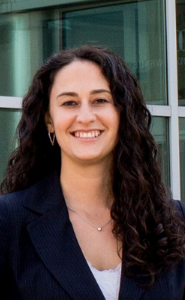The SECURE Act and What it Means for Your Retirement Benefits
As of January 1, 2020, the SECURE Act went into effect marking one of the most dynamic changes to retirement legislation since the Pension Protection Act of 2006. The far-reaching changes include significant provisions aimed at increasing access to tax-advantaged accounts and preventing older Americans from outliving their assets – good news for all.
Included in this new tax bill were several changes to the rules regarding IRAs. Read below for the changes and how it may impact your retirement benefits:
- The age to take Required Minimum Distributions (RMD) increased from 70½ to 72. Taxpayers who turned 70½ in 2019 will be subject to RMDs, but those who turn 70½ after January 1, 2020 will not be required to start making withdrawals from their retirement accounts until they turn 72 – thus, 2021 at the earliest. (And, of course, anyone turning 72 in 2020 will have already been subject to RMDs because they turned 70½ a year and a half earlier, when that was the minimum age.)
- So IRA balances could increase. By pushing back RMDs a year and a half, the IRS is giving retirees the gift of compound interest – an additional year and a half to contribute to your IRA and to let investments appreciate before you are required to start withdrawing.
- And RMDs will increase with them. For IRA holders, the SECURE Act is both a blessing and a curse. Having more money for retirement is a good thing, but there’s a catch: Higher balances will mean higher RMDs, which, of course, means more taxes. What does that mean?
- Qualified Charitable Distributions (QCDs) – gifts directly from your IRA to charity – will get bigger and more appealing. Higher RMDs, especially for IRA holders with balances of $400,000 or more, could have seriously consequential financial implications (including raising Medicare premiums), so taxpayers looking to reduce their tax exposure will find gifts to charities from their IRAs even more appealing than in previous years.
- Even though the age for taking RMDs was raised to age 72, you can still make QCDs from your IRA beginning at age 70½. IRA holders may not feel any urgency to withdraw funds from their IRAs if they’re not required to do so, but giving a QCD before turning 72 will help lower their eventual RMDs, so it could be a savvy move for those who have large IRA balances and who are smart tax planners.
- Elimination of the “Stretch” IRA. With the exception of five particular types of beneficiaries (“eligible designated beneficiaries”), the SECURE Act also eliminates the “Stretch” IRA, which previously allowed non-spouse inheritors of IRAs (e.g., your children and grandchildren) to take distributions over the course of their anticipated life expectancy. Now, IRA inheritors are required to take full distribution within 10 years, which could expose them to a much higher tax bill. To spare their families this tax headache, IRA holders may wish to pass on different assets to their loved ones, while designating their favorite charities as beneficiaries for their IRA.
- No Stretch, now what? Charitable remainder trusts (CRTs) may have more appeal now for one who has charitable intent and a desire to leave a lifetime income stream to their heirs rather than a 10-year payout taxed at high rates. Traditional retirement plan assets remaining at death can be paid income tax-free into the CRT, which then pays a lifetime stream of fixed dollar or fixed percentage payouts (taxable) to your beneficiary. Not only will the taxation of the income be deferred over a longer period, your heirs could potentially receive MORE income from the CRT than directly from the retirement plan. Moreover, you can make a meaningful gift to charity while still providing for your heirs.

The Associated’s professionals are ready to work with you and your advisors on ways to help maximize the financial and charitable benefits of any charitable planning strategies available to you.
For more information, contact Jackie Yahr, Assistant Vice President, Charitable Planning at 410-369-9248 or jyahr@associated.org.
This is for informational purposes only and should not be construed as legal, tax or financial advice. When considering gift planning strategies, you should always consult with your own legal and tax advisors.
Subscribe to our newsletter
The Associated is a home for everyone in the Baltimore Jewish community. We offer several email lists to help people find a community, engage with their peers and support Jewish journeys around the world.
Join Our Mailing ListAdd Impact to Your Inbox
Sign up for our newsletter
Subscribe to our newsletter
The Associated is a home for everyone in the Baltimore Jewish community. We offer several email lists to help people find a community, engage with their peers and support Jewish journeys around the world.
Join Our Mailing List









 Please Wait while we loading your video.
Please Wait while we loading your video.